RCSC Training is a trading name of Plant & Logistics Training Limited, providing quality Forklift Truck, Plant, Logistics, First Aid and Health & Safety training.
Registered in England and Wales (Company Number 13784172)
When it comes to selecting the right training for your requirements, there can be a lot to consider. Not least the accreditation that you want with your certification.
There are a range of accrediting bodies out there who set and monitor training standards and requirements, so why should you pick one over the others? Which one is the best?
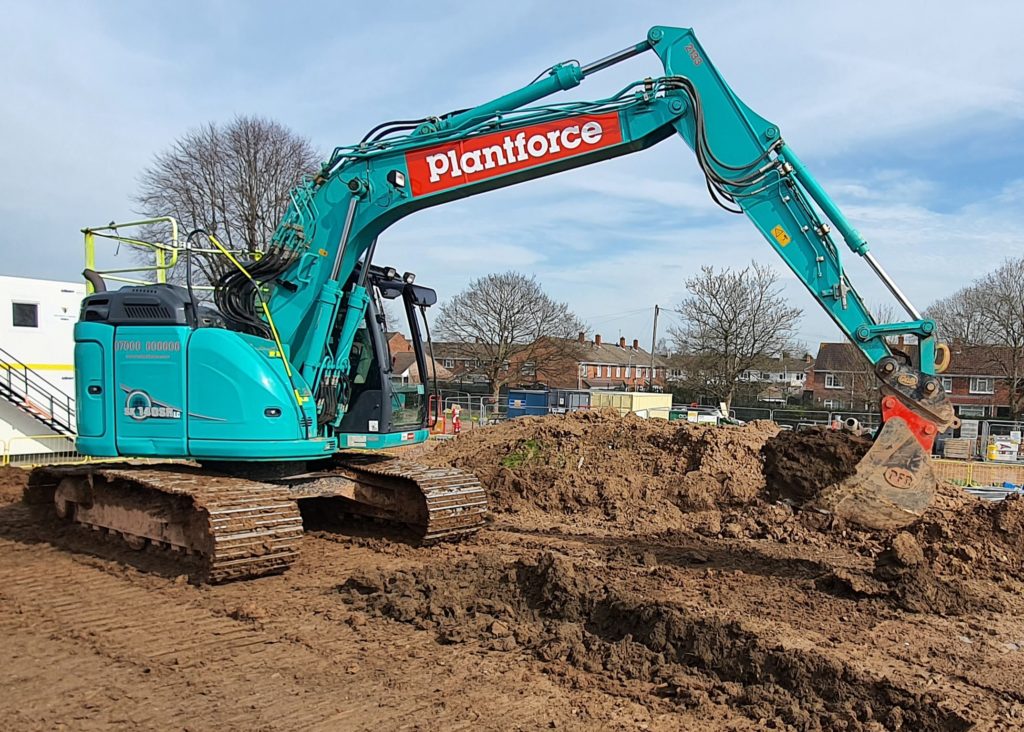
The answer to that question is largely going to depend on your specific circumstances. As we do a significant amount of training within the construction sector, we’re going to focus on the differences between the National Plant Operator Registration Scheme (NPORS) and the Construction Plant Competence Scheme (CPCS).
Both NPORS and CPCS have been around for a number of years and, whilst CPCS has been dominant for a number of those, things have – and continue to – change.
This is a reasonably long article, so you can use the links below to skip to the bit you’re most interested in, or right to the summary at the end.
When it comes to training, there is a significant difference between the two bodies.
NPORS training can only be delivered by NPORS accredited instructors, with the machines or categories of training they can deliver restricted only to those that they have demonstrated competence in.
To achieve NPORS instructor status, candidates must hold a recognised Health & Safety qualification, such as NEBOSH; maintain a First Aid certificate; evidence competence on the machines/categories that they wish to instruct on and pass a 5-day or 10-day instructional techniques qualification with NPORS. The course culminates in a number of theory tests, plus an examined classroom theory session and practical lesson delivered by the prospective instructor.
NPORS issue set standards for the delivery of all the training courses that can be delivered under their banner. These standards are enforced by providers registering training with NPORS before it takes place, enabling a team of monitors to turn up unannounced and ensure that their requirements are being adhered to.
Training must also comply with the minimum durations required, which are determined by the candidate’s previous experience, if any, and the type of machine or category of training they are undertaking.
CPCS take a very different approach to training. In fact, they do not get involved at all when it comes to setting requirements for training, or even who is delivering the training.
As such, CPCS training may or may not be delivered by a qualified instructor, who may or may not have experience on the machine that they are instructing you on, and could be shorter, longer or the same duration as a course through NPORS or another accrediditing body.
The reason for this is that CPCS focus only on the testing standards. Ultimately, when it comes to CPCS – if you can meet the standard required for the relevant test(s) then you’ve got the card.
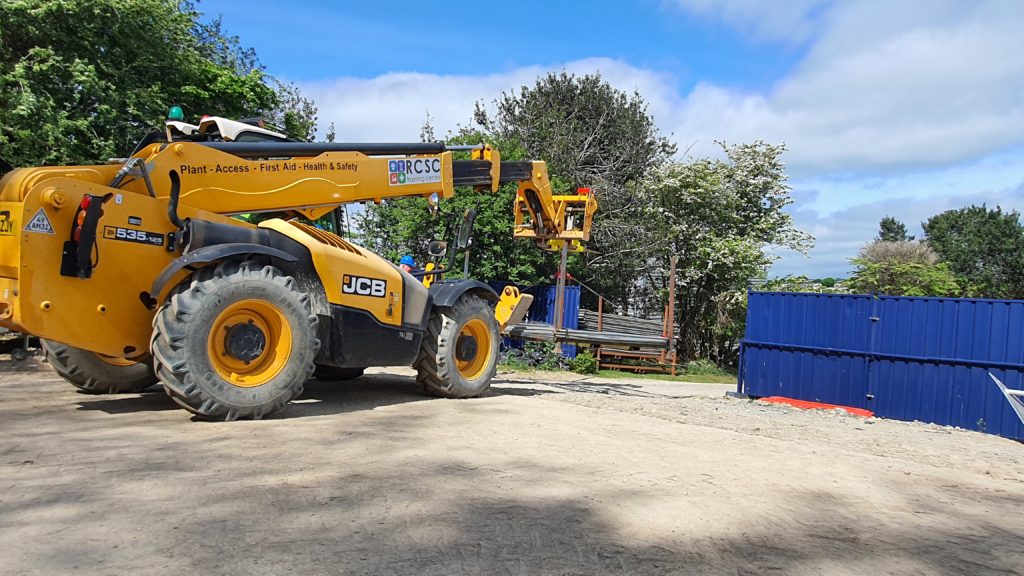
As far as tests are concerned, there’s not much to separate the two schemes. Both schemes require candidates to pass a theoretical knowledge element and a practical skills test, although there can be a difference in how these are administered.
The main difference is that CPCS testing can only take place at an authorised CPCS test centre. Depending on your location, these can be few and far between. For example, there are only four providers with CPCS test centres throughout the whole of Devon and Cornwall, although some do have more than one location. This can restrict choice, as your nearest centre can be some distance away – a candidate based in Exeter, say, would have only one centre within a 40 mile drive.
NPORS allow training and testing to take place either at an approved testing centre – which undergoes annual audits to ensure standards are being maintained – or on site (e.g. at the client’s premises) so long as the requirements of the test can be met. Even where the test requirements cannot be met in full, training can still take place, but with a restriction placed on the candidate’s certification accordingly. This option can be very useful for employers who still want to ensure a high standard of training, but where the application is quite specific or may not bear much resemblance to the basic test requirements.
The cost of training and testing is a key consideration for many – especially for those who are paying for the training out of their own pocket. Ultimately, the cost will depend not just on which accreditation scheme is chosen, but also the provider that you opt to go with.
As a general rule, however, CPCS does tend to work out as a more expensive option than NPORS for the equivalent training/testing.
Good to know:
We offer various payment options, including payment plans to help spread the cost of your training. Contact us today for more information!
A significant factor when it comes to deciding which route to take is whether or not the resulting certification will enable you to find work once you’ve achieved the standard.
This is where NPORS have made significant strides over recent years. It used to be the case that, especially in the construction world, CPCS were considered essentially the only option for would-be plant operators, slingers etc. But, at the time of writing, the two schemes are very close indeed.
There are some – typically contractors working on major infrastructure projects such as HS2 – that will insist on CPCS certification still, but if a CPCS card would get you onto 100% of UK sites, then an equivalent NPORS card would get you onto around 99%.
To date, the NPORS scheme has secured recognition from the Construction Site Certification Scheme (CSCS), Construction Industry Training Board (CITB), Build UK (an association of major UK construction contractors) and Civil Engineers Contractors Association (CECA) to name a few.
The two schemes also differ slightly here.
CPCS offers only one route for certification. On initial passing of the test(s), operators receive a red “trained operator” card, bearing the CSCS hologram, which is valid for two years. Within that two year period, the candidate can complete a National Vocational Qualification (NVQ) in the relevant category of plant to upgrade this to a blue “competent operator” card, valid for five years.
NPORS offer a mirror scheme to this, with cards that also bear the CSCS logo on completion of the test and with the identical requirements for transitioning from a “trained operator” to a “competent operator” card.
Both schemes require the operator to have achieved a Pass in the CITB Health Safety & Environment test for Operatives within the 2 years prior to achieving or renewing a card.
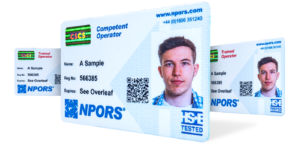
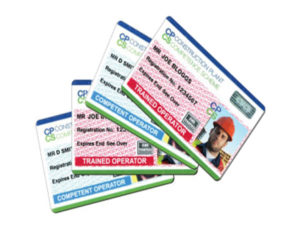
NPORS also offer a “traditional” card. This is popular amongst employers who tend not to operate within the construction sector. The reason being that, whilst the exact same standards are applied to the training and testing, cards can be set to be valid for either three or five years – as required – without the need to complete potentially expensive and time consuming NVQs. These cards do not bear the CSCS hologram, however, which is usually a requirement when it comes to using them in a construction setting.
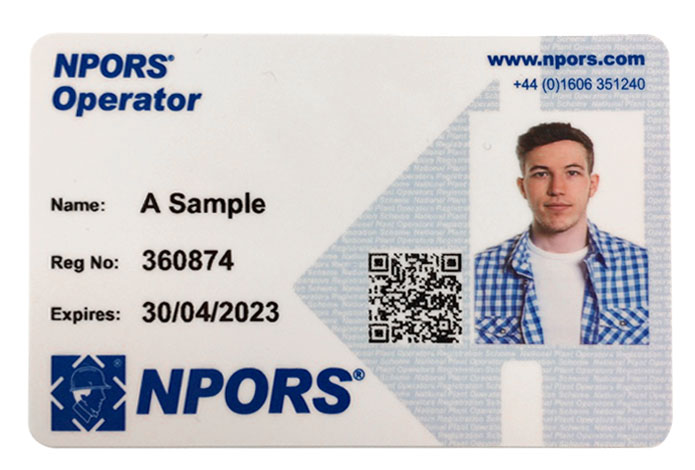
There’s nothing more frustrating than knowing you’ve passed a test but having to wait for the certificate to arrive. This is where NPORS really stand out from the crowd.
There have been reports – although it doesn’t seem to be consistent – of people having to wait several weeks or, in some cases, months after passing their test for their CPCS cards to arrive.
NPORS have become renowned for their quick turnaround time. When the training provider submits the application for the card, it’s typically on their desk within 1-2 working days – a clear advantage for the operator and/or employer. Additionally, a digital cover letter is issued immediately, valid for 45 days, which confirms the operator’s qualifications, essentially resulting in zero delay.
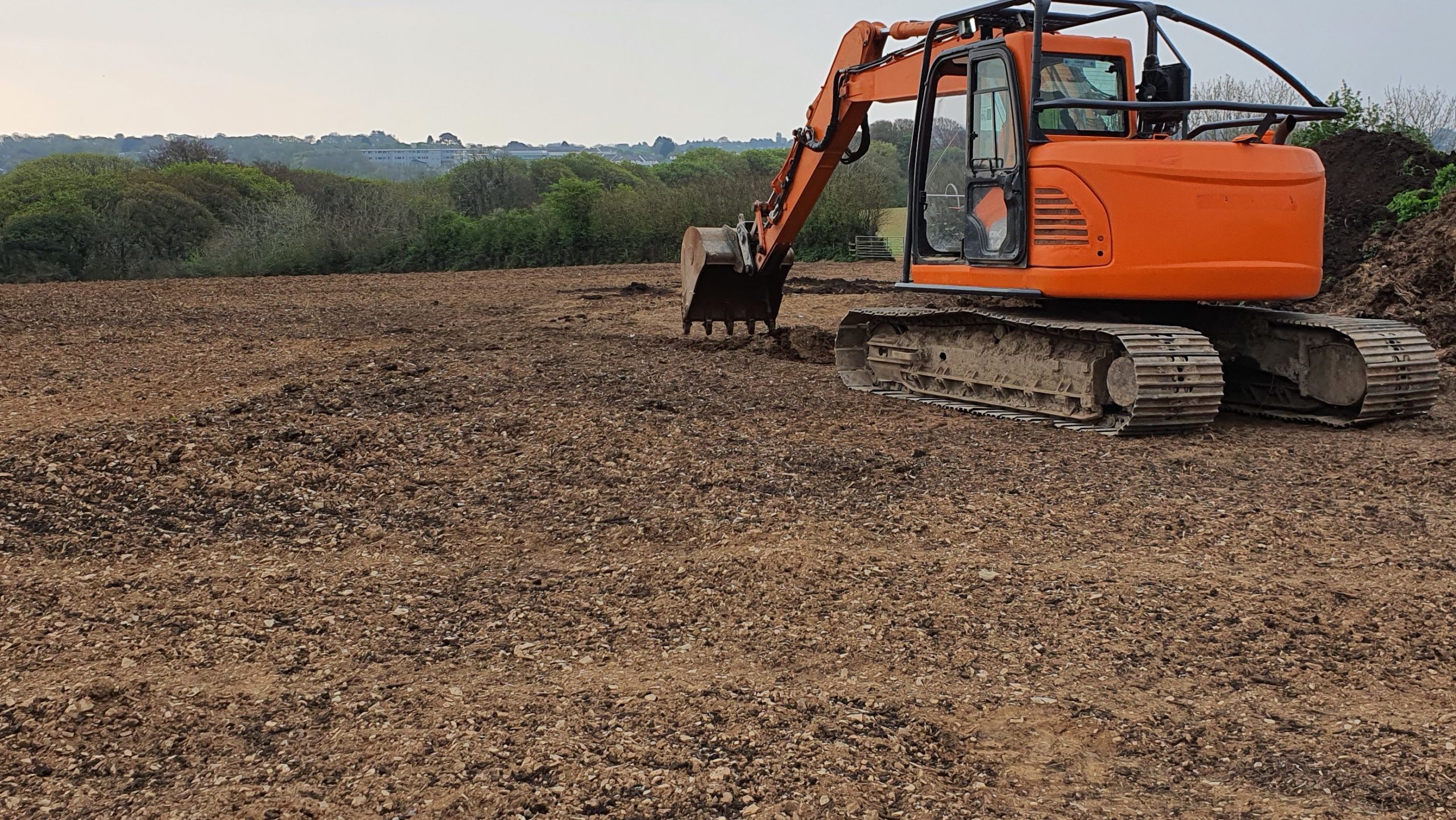
There are many similarities, but also some differences, between the NPORS and CPCS schemes. The “best” scheme will depend on your personal circumstances and/or the budget you’ve got available.
Main considerations:
Although, these days, there’s hardly anything in it. Both schemes should allow you to find work relatively easily.
This means chosing a provider can be more of a gamble as trainers aren’t required to undergo monitoring to ensure standards are being upheld. Be sure to do your research before booking.
This is a requirement of most construction sites, but it’s worth noting that NPORS also offer a “traditional” card aimed at sectors outside of construction.
Although they are administered differently, the content and the skills to be demonstrated are quite similar.
Whereas, CPCS testing can only take place at an approved testing facility. These can be few and far between depending on where you’re based.
The flexibility offered by NPORS means lower costs for providers, meaning the savings can be passed on to you. Whilst not always the case, CPCS will, more often than not, be the more expensive option.
With NPORS, you can expect to receive your card within days rather than weeks. CPCS have been known to experience significant delays.
Hopefully by highlighting these similarities and differences, we’ve helped you to decide which scheme is best for you. We can provide your practical training regardless of which route you take, and can facilitate NPORS testing either at our centre in Plymouth or at your site on a nationwide basis.
Check out the courses we offer, or contact us to book your training today!